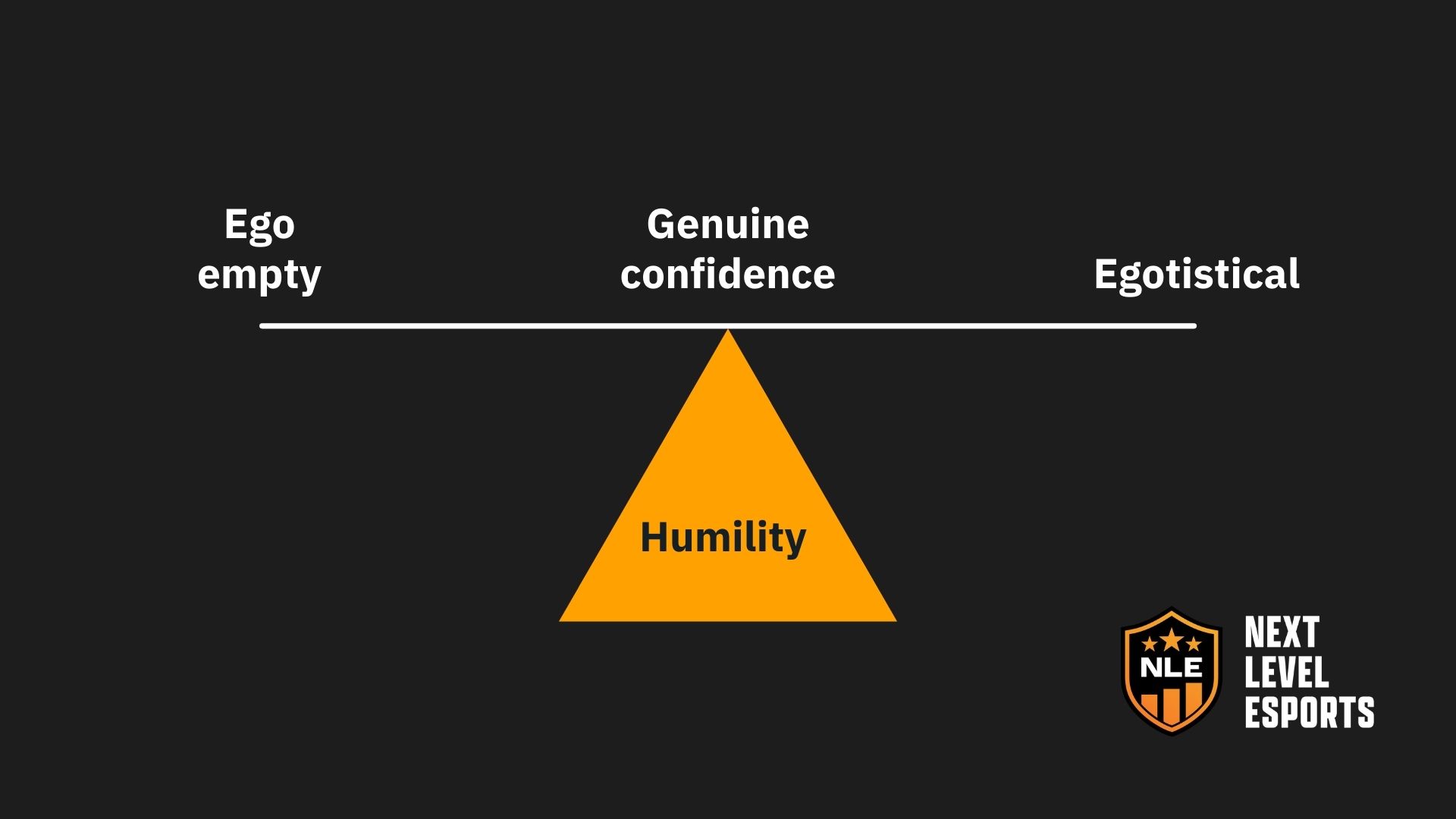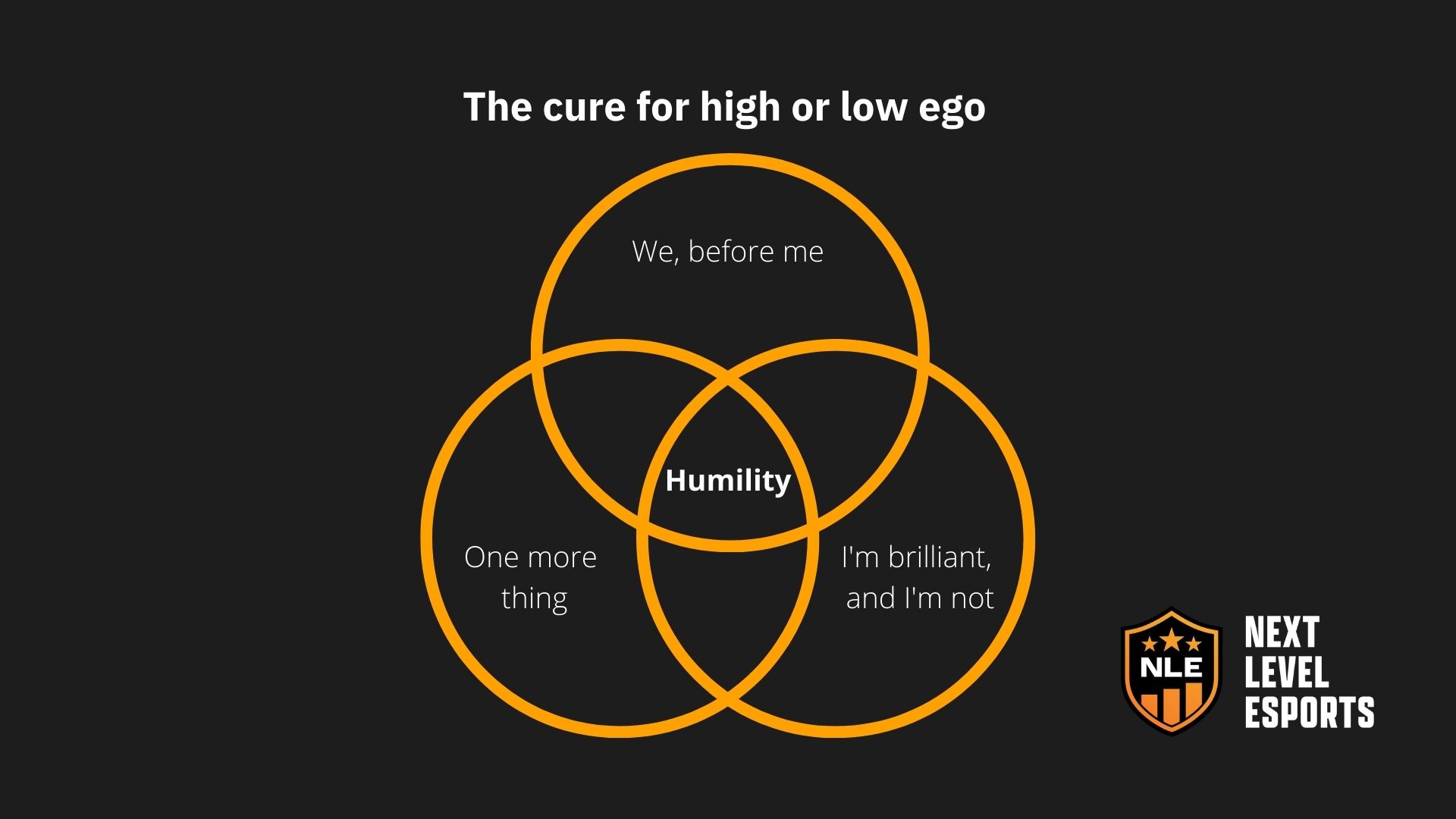
How to deal with high ego players
Aug 23, 2022Have you ever coached a player who doesn't respond to your suggestions, listen to what you say, or take your feedback on board? No matter what you coach him on, he always believes that he knows best, whether it's about strategy, tactics, champion picks, or any other aspect of the game.
Whether you are a new Esports coach or a 10-year veteran, you've most likely come across a high ego player. You could even have one (or more) in your team right now.
This can be frustrating as a coach. It sets a bad example for the team and doesn't add to a healthy learning environment. You want your coaching to be received by each player because you know you can help them reach their next level. To achieve that, you've got to learn to work with high ego players.
To help you do that, we're going to cover what ego is, four warning signs for an out-of-balance ego, and how to help your players find balance with genuine confidence and humility.
What is the ego?
Firstly, you know that you're different from others and the rest of the world. You have your own identity. But how did that identity create itself? Through two sources of input. Internal and external.
Internal input - your internal evaluations of yourself. You evaluate yourself daily. You give yourself feedback about how you perform, look, behave, think, feel, etc. For example, you might say, "I'm not a good enough player to go pro". This is input that your ego will use to build up an image of itself.
External input – what you receive from people and the world around you. For example, your friend might say to you, "you'll always be a great gamer", or "you're so kind and caring". This is input that your ego will use to create itself.
These two sources of input create your 'persona'. That persona is called the ego.
Is having an ego bad?
Simply put, it's only bad if you have too little or too much. Your job as a coach is to help your players (and yourself) keep it balanced to reach higher performance levels.
How do you know if the ego is out of balance?
Helping your players to keep a balanced ego can be challenging, but it's essential for a healthy team environment and, therefore, important. If you want to help your players do this, you first need to know how to spot an ego that's either too low or too high using these four warning signs:

Comparative
This is when your player is constantly comparing himself to other players.
High ego – "That player/team is really bad. I can for sure beat him"
Low ego – "That player is too good. I can never reach that level or ever beat him."
Being defensive
High ego players stand behind their points and are never open to other suggestions. Low ego players allow others to "run over" them.
High ego – "No, no, no! You don't know what you're talking about! THIS is how we're going to do it!"
Low ego – "You're totally right, you're always right, you just go ahead and pick the strats and champions, I'll do whatever, whatever you want is good for me."
Showcasing brilliance
Players tend to show off too much or not at all. High ego players leave little room for coaching because they think they're the best.
High ego – "Look at how good I played this" or "I just always do the same thing, and it always works for me".
Low ego – "Yeah, uhhh, I don't know, man, you know best, you're the coach, you're the best".
Seeking acceptance
High ego players want to be watched. Low ego players always seek acceptance and reassurance from you or their teammates.
High ego – "Ha! Look at me! Did you see that ace? Did you see that outplay? Did you see it! Did you see it!".
Low ego – "hey guys, I just want feedback. What do you guys think? Did I play well? Was it a good pick? Was it a good strategy?"
Now you have a good understanding of what ego is. You also have an idea of what it might sound like when one of your players has an ego that's too high or too low. But what's the middle point? How do you help them find balance? With genuine confidence based on humility.
Humility is the answer for too low or too high ego

Genuine confidence comes from humility. Humility is "intelligent self-respect that keeps us from thinking too much or too little of ourselves. It reminds us of how far we have come while at the same time helping us to see how far short we are of what we can be" – Egonomics.
This might sound like, "I'm good enough, I'm great enough because of my grind, because I collaborate with other coaches, because of my growth mindset… and at the same time, I'm not there yet. I'm not where I want to be. I can still be so much more. That's why I'll continue my grind and my training".
That's humility. That's keeping centered with genuine confidence.
Your next level
Want more of these insights, more examples, more detailed, more in depth, and more practical ways to implement it to elevate your esports coaching to the next level? Are you looking to transform your esports coaching career and reach your next level by having the impact that you want and your players need, growing your career faster, coaching better teams, and learning how to position and market yourself at the same time? Then check out the Esports Coach Revolution Course, which is a unique chance to get where you want to be as an esports coach. With a community of like-minded coaches, you will learn everything you need in 10 weeks to transform your career to the next level with continuous updates, new content and courses and much more...
Questions about the Esports Coach Revolution or other things you would like to know or learn about esports coaching? click [here] to join the Next Level Esports Discord and just send a message in general chat or a DM.
See you there, coach!
Want to give your esports coaching a boost?
I can help you do it. Grab your FREE e-book about:
'The foundation of performance: How To Motivate Your Players'


